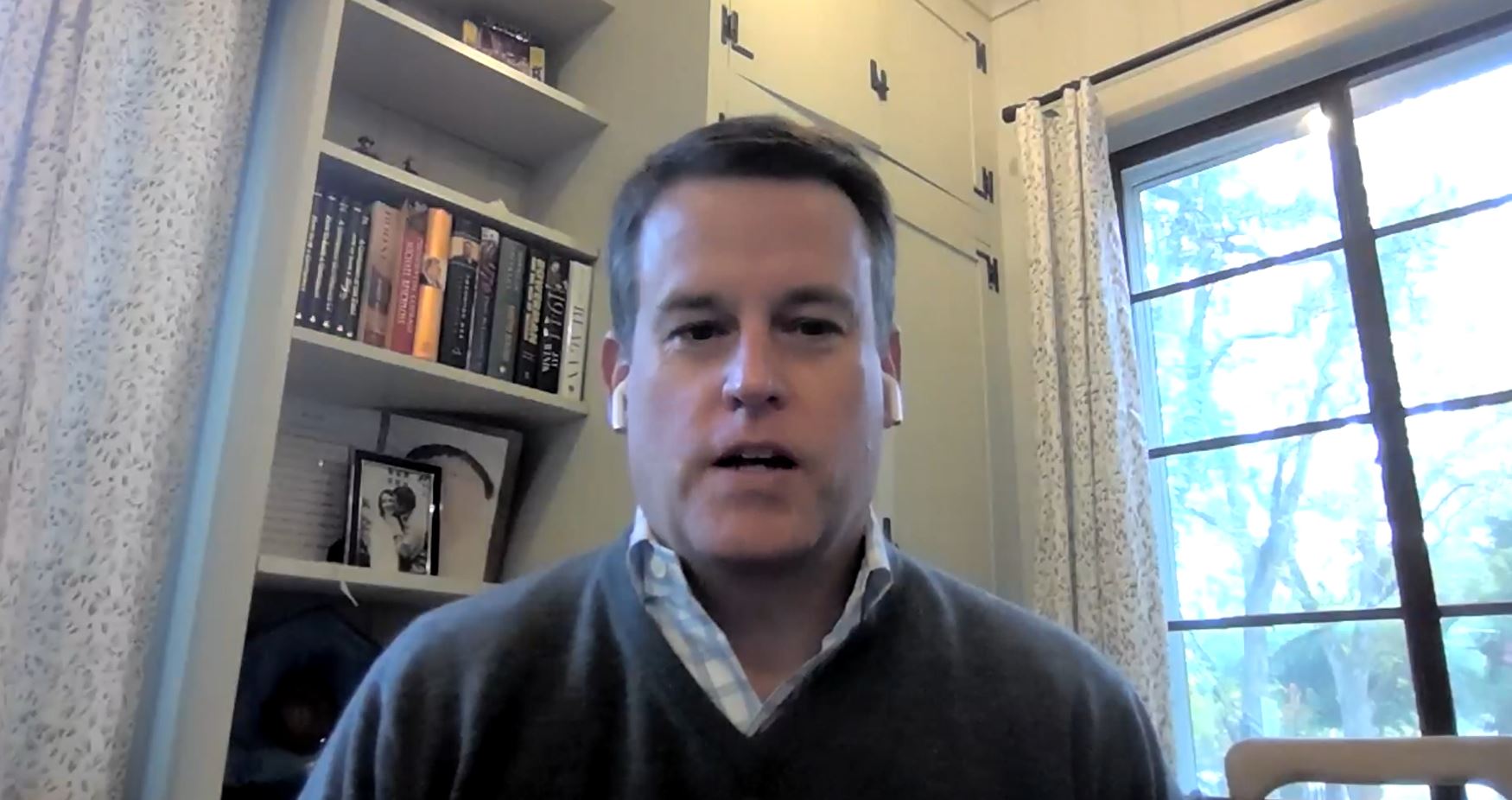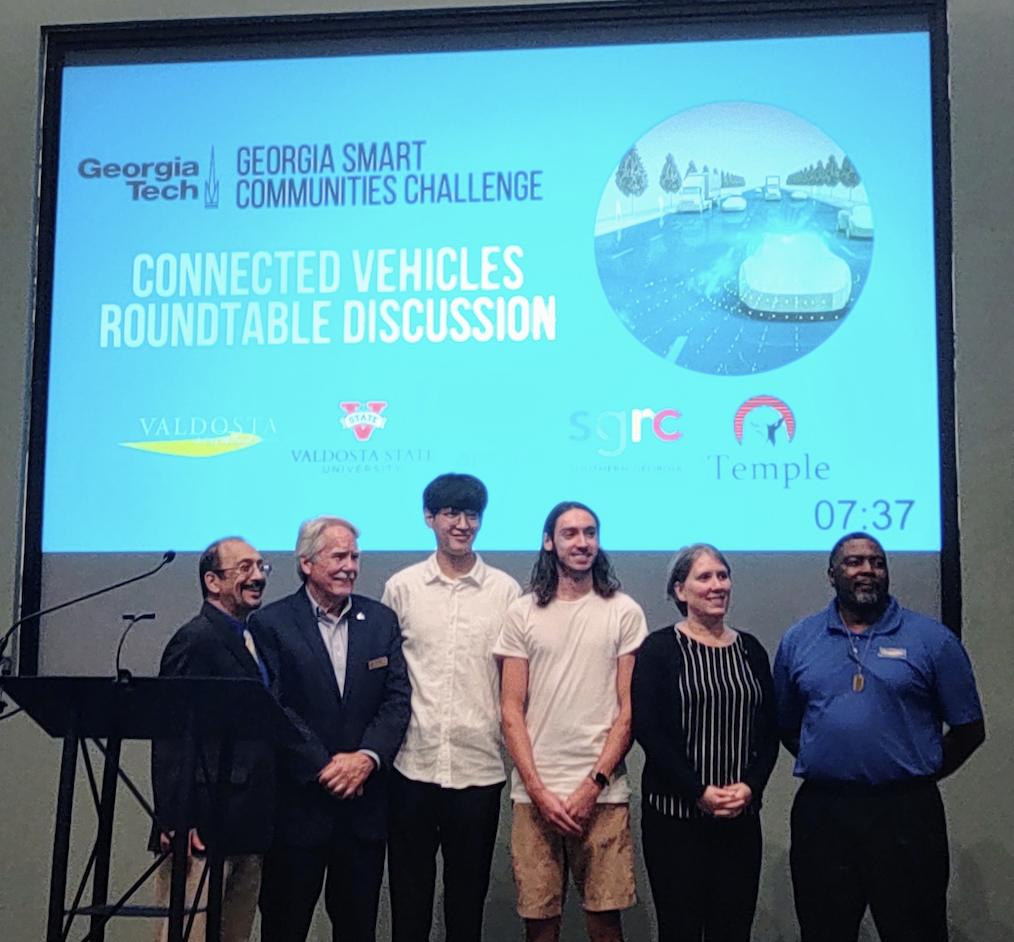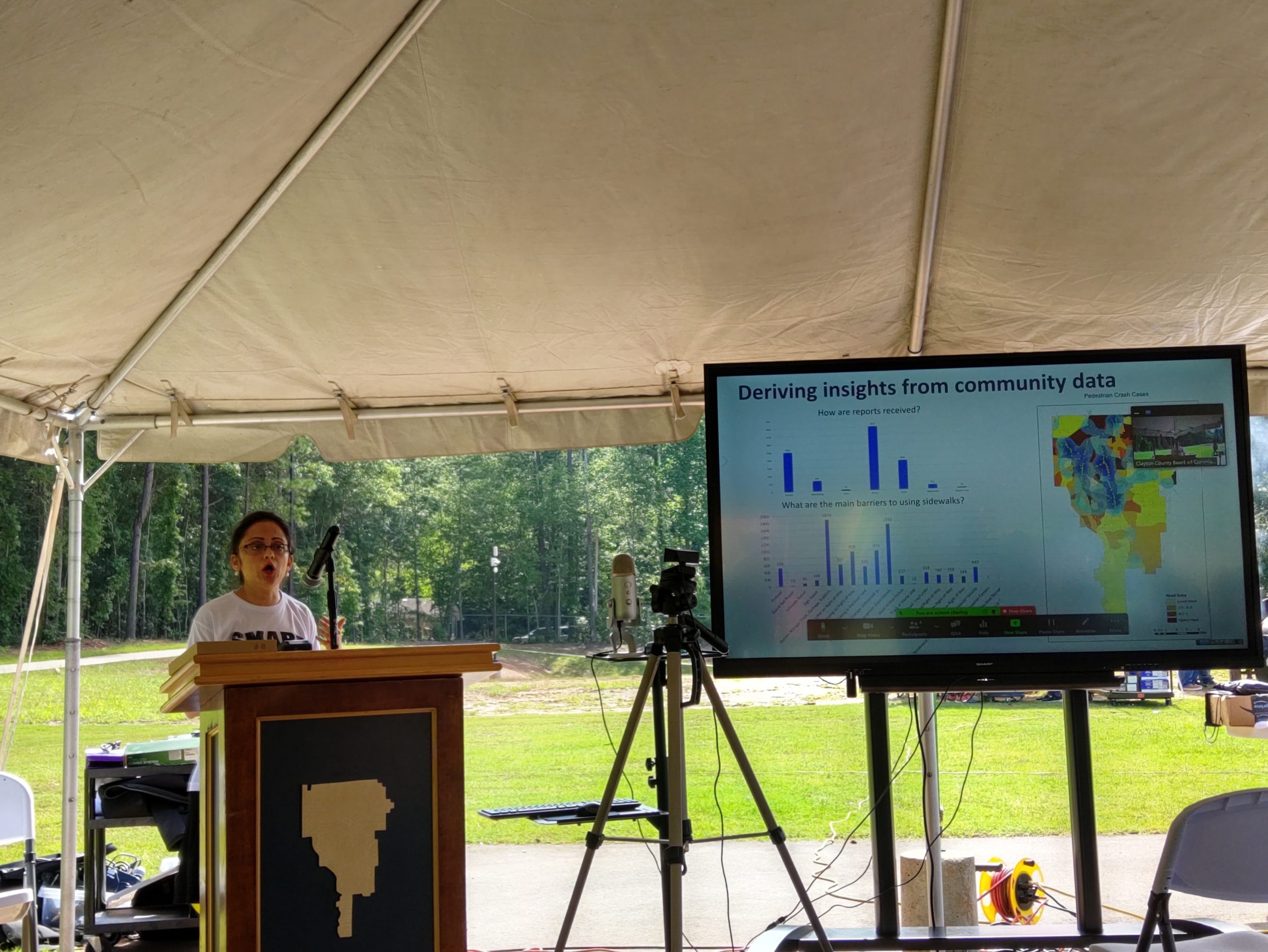Partnership Hosts PINacle Symposium
Working together to workshop ideas for impactful community research.
By Madison Davis
On October 28th, the Partnership for Inclusive Innovation (Partnership) hosted its first PINacle Symposium, an interactive, virtual event in which researchers from diverse universities and disciplines proposed ideas for impactful and innovative community research projects to potential partner communities. The theme for the 2022 PINacle Symposium was smart resilience, covering topics such as disaster response, energy efficiency, public safety, and more. Participating community representatives each gave a short presentation about challenges in their community and the types of projects they are interested in implementing.
Mayor Brian Brodrick of the City of Watkinsville discussed the contextual challenges for smart resilience planning with limited resources. The city hopes to leverage private-public partnerships to develop public technologies to supports its infrastructure. Mayor Broderick explained that the city is interested in expanding electrical vehicle charging along State Highway 441 and deploying a solar charging grid to reduce energy costs for residents. He also explained that Watkinsville is interested in mobility and housing affordability projects to address the needs of community members with disabilities as well.
“We are a small city [that] handles trash pick-up, public safety, and contributes to a variety of other public services but public-private partnerships like this are how we get a lot of things done.” – Mayor Brian Brodrick
Mason Ailstock from the Rowen Foundation (Foundation) described the organization’s plan for its land in Gwinnett County. The Foundation is using its 2000 acre property to create a space for research innovation. Specifically, they are linking agricultural, medical, and environmental sciences with enabling technologies to serve as a testbed for innovation. Mr. Ailstock explained how the Foundation wants to collaborate with researchers to explore broadband internet, connectivity, mobility, resilience, and sustainability for smart cities.
“Rowen is really wanting to position ourselves as a place that connects the resources and the wisdom form multiple higher education institutions and creates a physical place where those partnerships can create something new – something different.” – Mason Ailstock
After the community representatives, researchers from six universities across Georgia each gave short presentations over their previous research experience and discuss relevant. Dr. Riduan Abid, Associate Professor at Columbus State University, presented on renewable energy and smart grids research focusing on smart grids as an energy solution supported by real time analysis and tracking using advanced metering and information technology. His previous projects integrated microgrids into buildings by deploying sensors and he is planning for smart grid deployment at his home institution. Dr. Abid emphasized the need to address smart grid affordability since smart grids link the other smart cities components together into a cohesive network.
“When we say ‘smart grids’ the smartness comes from the tracking of the information. You track the information in real time, you analyze it, you process it, then you come to a decision.” Dr. Riduan Abid
Dr. Parth Bhavsar, Assistant Professor at Kennesaw State University, presented on portable transportation data analytics and collection systems that he developed using GDOT vehicles and smartphone apps. He explained that these systems prioritize affordability for communities who cannot afford other kinds of data collection systems. Dr. Bhavsar expressed an interest to partner with communities with non-emergency medical transportation needs, focusing on a passenger-centered transportation paradigm.
“Even though state DOTs have every expensive equipment to monitor pavement distress, counties and cities cannot use them often because of the cost of use. Our solution fit perfectly for [those] counties and cities [who] wanted to collect data.” Parth Bhavsar
Dr. Barry Hojjatie, Professor at Valdosta State University, discussed his work on the Valdosta Smart City Project supported by GT Community Challenge Grant. Dr. Hojjatie and his team used CAD modeling to develop intersection simulations for Valdosta to document dangerous intersections and collect survey data around pedestrian interactions. He indicated his desire to facilitate more experiential learning opportunities for his students and seeing the PINacle Symposium as a platform to solicit more projects.
Dr. Zhaoqiong Qin, Associate Professor at Savannah State University, discussed her logistics and supply chain management background, highlighting previous research in intermodal transportation logistics, decision science, and game theory.
Dr. Arthi Rao, Research Scientist at Georgia Institute of Technology discussed her practice-based and community-focused research, focusing on applications in place and health research, urban planning, neighborhood effects of health, applied geospatial research, and smart cities. She highlighted the need to match technical and research expertise with community needs.
“We pride ourselves on doing work that is rooted in community, that is practice-based, so it’s a really good bridge between academia and doing things that are applied for the whole community.” – Dr. Arthi Rao
Dr. Jingjing Yin, Associate Professor at Georgia Southern University, presented on her biostatistics and methodological research background, emphasizing previous research experience applying her expertise to disaster response and social media for information dissemination and data collection. Dr. Yin expressed interest in using data to improve municipal connections by evaluating the effectiveness of current operations and testing the impact of new operations.
Before the closing of the event, researchers split into breakout groups after their presentations to form preliminary community-research teams and discuss application for the Partnership’s seed funding. Researchers from any higher education institution in Georgia are welcome to apply for this funding in partnership with a municipality before December 15th, for the upcoming period of consideration.
You can view the community and faculty presentations from the PINacle Symposium below.



 November 09, 2022, 11:11am EDT
November 09, 2022, 11:11am EDT
No Comments